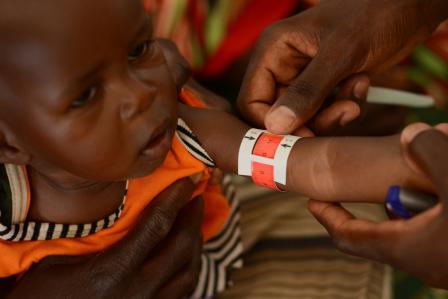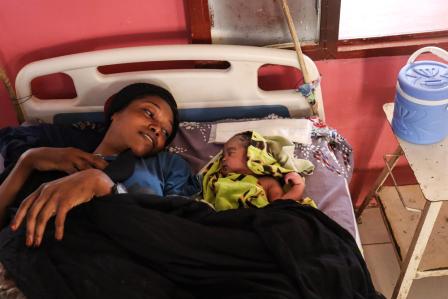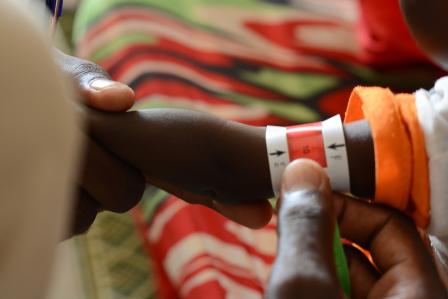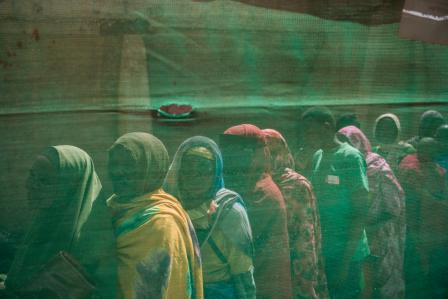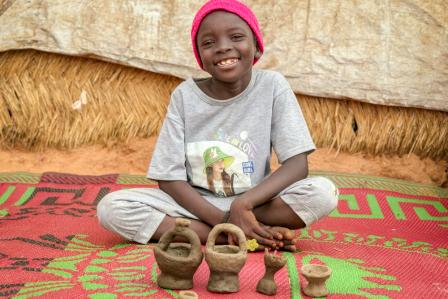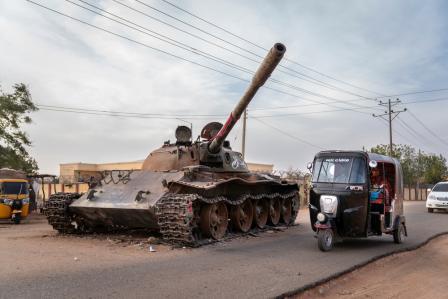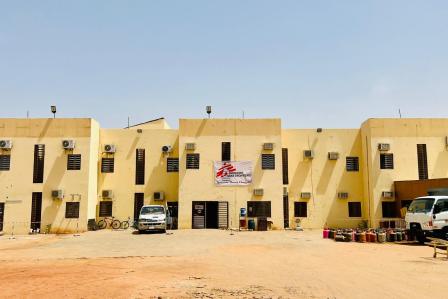Sudan: One in six war-wounded patients at south Khartoum hospital are children
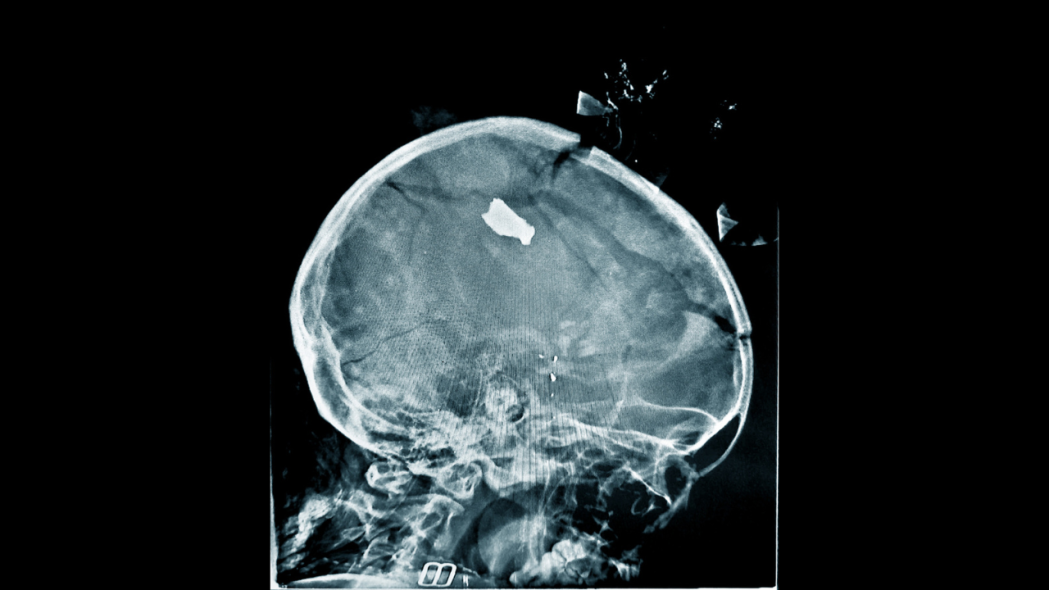
While shopping with her mother at a nearby market this 20-month-old toddler was struck by shrapnel after a bomb-blast tore through the neighbourhood. Along with other casualties the unnamed girl was brought to the Bashair Training Hospital in South Khartoum. During the X-ray a part of the girl's skull cap fell onto the table. A Doctors Without Borders emergency team operated on the girl and managed to save her life. Sudan, November 2024. © MSF
Approximately one in six war-wounded patients treated at the Bashair Teaching Hospital in south Khartoum since January 2024 have been under the age of 15 years old, according to Doctors Without Borders / Médecins Sans Frontières (MSF). Many of these children suffered gunshot, blast and shrapnel wounds. Doctors are also concerned about the spike in children arriving at the hospital severely malnourished.
Doctors Without Borders teams working alongside hospital staff have treated more than 4,214 patients for trauma injuries caused by violence, including gunshots and bomb blasts. Of these, 16% were children under 15 years of age. Bashair Teaching hospital is one of the last functioning hospitals in south Khartoum, providing emergency care, and surgery, as well as maternity services.
18-month-old baby Riyad was brought to the emergency room after a stray bullet struck his right side while he was napping in his family’s home. The medical team fought for four hours to stabilise him. Due to the heavy loss of blood, the chances of him surviving the surgery were fifty-fifty.Dr Moeen*, Medical Team Leader
The team was able to stop Riyad's bleeding, but the bullet remained lodged in his chest. It is unclear how long it will be removed. The hospital does not have advanced surgical capacities, partly because of a systematic blockage on surgical supplies that has been in place by warring parties since October 2023. Referring patients out of area is also very difficult as transport routes are either destroyed or far too dangerous. Riyad is one of the 314 children treated for gunshot and blast wounds in 2024.
Deliberate blockages on the delivery of medical supplies and medicines means that basic emergency procedures, like treating severe burns, are impossible to undertake at the hospital. This is worrying as more and more people are falling victim to bomb blasts and there is not a fully functioning burn centre in Khartoum.
In late October more than 30 war-wounded patients were rushed to Bashair hospital in one day following an explosion at a market less than one kilometre away. Twelve of those brought to the emergency room were children under 15 years of age. Many of these children suffered burns and trauma wounds. One girl, almost two years old, came in with shrapnel deep in her head. While the team carefully laid her on the X-ray table, part of the tiny head’s fragile skullcap fell onto the table.
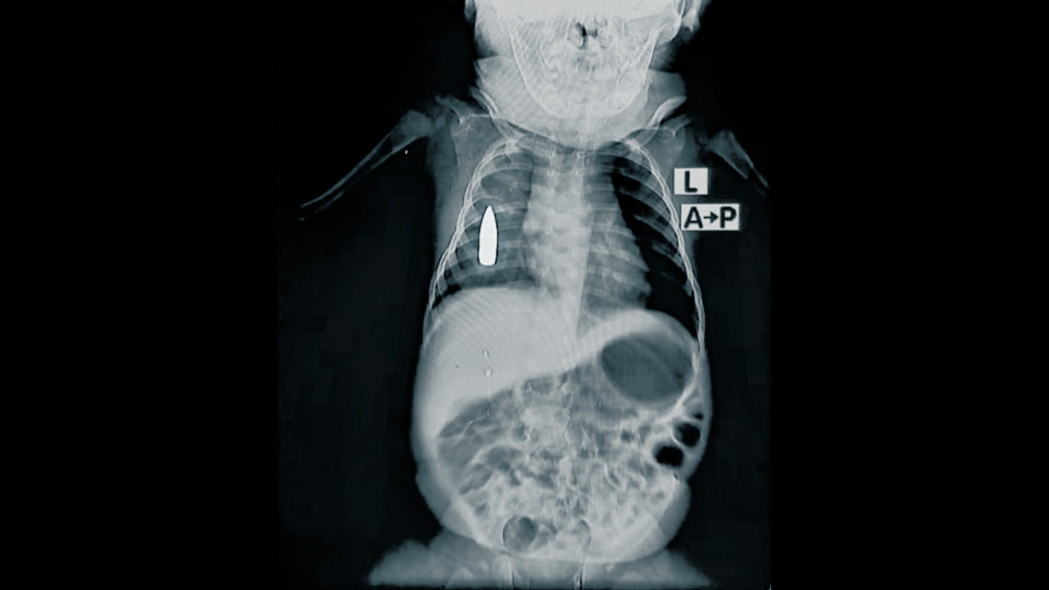
X-ray an 18-month-old Riyad who was struck in the chest by a stray bullet while he was taking a nap in Khartoum. The toddler was brought to the emergency room of the Doctors Without Borders supported Bashair Teaching Hospital by care givers. A Doctors Without Borders emergency surgery team started life saving surgery on Riyad. The surgeon operating said that the chances of survival were 50/50 as there was considerable blood loss. The surgeons managed to save his life but the bullet remains. Although the team is trying to refer to remove the bullet from the toddler, this is not possible as access routes out of the city are blocked and specialised clinics are no longer functioning. Sudan, November 2024. © MSF
Mass casualty events like this – where a large number of patients arrive in a short space of time – have become more frequent as the fighting in the city has intensified, Dr Moeen* explains. The few hospitals that continue to function are under immense pressure and medical staff are struggling to manage all the needs.
At the same time, Bashair Teaching hospital has begun to see an increase in the number of children and pregnant women with acute malnutrition, which is life-threatening without treatment. Of the 4,186 women and children screened for malnutrition between 19 October and 8 November 2024, more than 1,500 were suffering from severe acute malnutrition and 400 were moderately malnourished.
These figures of violence and malnutrition show the nightmare people, including children, are experiencing in Khartoum. Parties to the conflict must ensure civilians are protected. Medical supplies should be allowed to reach all hospitals in Sudan.Claire San Filippo,Emergency Coordinator
*Names changed to protect identity.
Since the outbreak of the conflict in April 2023, over 500,000 people have sought medical care in Doctors Without Borders supported hospitals, health facilities and mobile clinics across Sudan. Doctors Without Borders is supporting and working in more than 12 health facilities in conflict-afflicted areas, including in Khartoum, sites of high intensity clashes since the beginning of the war. Between January and September 2024 Doctors Without Borders treated a total of 6,557 war-wounded in all our facilities in Sudan. With over 11 million people displaced Sudan has become the largest displacement crisis in recent memory. Doctors Without Borders is active in 11 of 18 states to deliver free medical aid to those who need it most.

